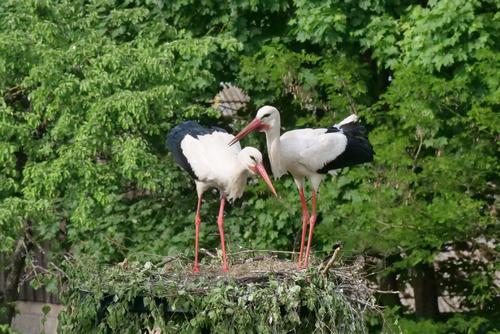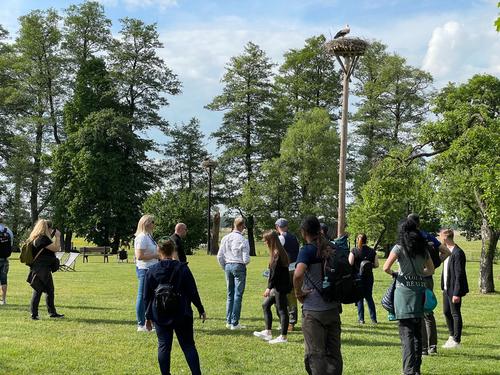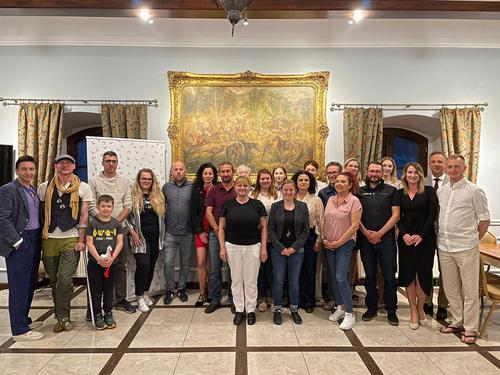It was an anniversary celebrated in style: For the 20th annual meeting, representatives of the European Stork Villages met for the first time in the Polish Stork Commune of Tykocin/Pentowo. The hosts organised an event that not only ran smoothly but was also packed with atmosphere.

From the observation tower in Pentowo you had a fantastic view into the storks' nests.
© Christian Stielow
A lot of hustle and bustle, but the storks in Pentowo are used to that.
© Ilka Beermann
Please smile: the participants of the Stork Village Meeting in Tykocin
© EuroNaturThe 20th annual meeting of the European Stork Villages Network took place in the Polish stork village of Tykocin/Pentowo from 22 to 25 May 2023 and was attended by stork conservationists and community representatives from five other villages of the European network. "The turnout this year was unfortunately low," says Ilka Beermann from EuroNatur. She is in charge of the initiative at the Foundation. "But this had the advantage that we were able to engage in in-depth discussions and had more time than usual to talk about the developments in the individual communities," said the project manager.
The representatives from the stork villages gave presentations on the latest developments concerning their stork populations as well as measures for their protection. The example of the Hungarian stork village of Nagybajom was particularly impressive. With relatively small interventions, the national park staff there succeeded in the past autumn and winter in transforming the Boronka stream into a living habitat for insects, amphibians and thus also for storks. Many species that had become extinct there have already returned this spring. The example from Nagybajom shows just how valuable rewilding measures can be.
In addition to lectures and group work on the economic, social and political factors facing the stork villages in their daily work, the programme contained numerous excursions including a trip to Pentowo, a district of the Tykocin municipality, three kilometres away. Here, on the horse farm belonging to Łukasz Toczyłowski, 23 pairs of storks are breeding this year. There is probably no other place in Europe with such a high density of storks. Łukasz took the stork village representatives on a tour of his farm and explained how a sustainable form of agriculture can have a positive impact on the population of these birds. Other excursions included visits to the nearby Narwianski National Park with its modern multimedia visitor centre and to the reedbeds of the Narew River near Tykocin where a variety of rare bird species still breed.
The week in the north-east of Poland once again made clear to all participants the importance of extensive farming for the local wildlife and thus for biodiversity. It is not only the white stork that benefits from extensive farming, but also many other species. This was amply demonstrated by a magnificent concert of birds and frogs in the evening and early hours of the morning, an unaccustomed sound for our central European ears.


